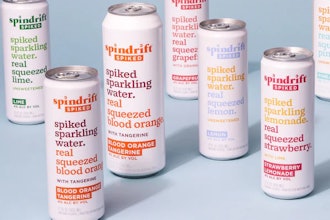
SAN BRUNO, Calif. — Food-recycling system Mill on Thursday announced new results from the company's year-long pilot with the city of Tacoma, Washington.
The results show that Mill increases food scrap source separation both in households that have previously participated in municipal food scraps collection and those that have not, and offers an easy way for Tacoma residents to enjoy a better kitchen experience, save on their waste and grocery bills, and prevent harmful methane emissions.
In February 2023, Mill and the city of Tacoma announced a first-of-its-kind agreement to pilot a new strategy for using connected in-home food recycling infrastructure to address residential food waste diversion. The goals of the pilot were to determine if Mill's food recycling technology could increase citizen participation in food scraps source separation efforts, reduce contamination in the waste stream, and offer a new opportunity for residential customers to reduce the volume and price of their waste service by separating food scraps out of the waste stream.
Increased Per-Household Food Scrap Source Separation:
- Mill participants in the Tacoma pilot source separated ten times more food scraps than the average Tacoma household.
- 84% of respondents to a post-pilot survey reported putting zero food scraps into the trash after having Mill at home.
- Over half of respondents had not previously used the city's food scraps collection service, indicating that Mill is improving both the quality and quantity of citizen participation in food scrap source separation efforts.
Reduction in Garbage Cart Volume, with Time and Cost-Saving Implications:
- Prior to Mill, 84% of respondents reported their garbage cart was generally full or overfull. After having Mill, zero respondents reported having an overfull garbage cart, and over half (56%) reported room to spare.
- These results indicate that Mill is reducing the amount of food that ends up in the trash, and offers new opportunities for people living in pay-as-you-throw jurisdictions to save money on their monthly waste bill.
- Most surveyed households also saw a reduction in household chores: 56% reported they were taking the trash out less frequently, and 72% responded they were taking the garbage out once a week or less.
"The diversion numbers for the Mill pilot are impressive, and the technology has been generally effective in addressing the ick factor for residential customers who want to divert food waste, and have a willingness to pay for the service. We are interested in exploring ways that this type of technology can fit into our overall menu of solid waste services," said Lewis Griffith, solid waste division manager, city of Tacoma.
Economic and Environmental Implications for Consumers and Municipalities
Results from Mill's pilot with the city of Tacoma reinforce insights from Mill's inaugural data report, which demonstrated that Mill is increasing awareness of food waste and changing behavior in a sustained way, and presenting new opportunities for people to save money and reduce waste. Coupled with the finding based on over two million days of device data that Mill customers nationwide decreased the overall amount of wasted food they produce by over 20% over the first four months of use, the economic implications are significant: a Mill Tacoma customer could save $320 downsizing the size of their garbage cart, and save at least $380 annually through a 20% reduction in wasted food.
The results from Mill's first municipal pilot have implications for government leaders across the country seeking proven, readily-deployable, cost-effective technology solutions that are compatible with existing municipal infrastructure to increase food waste diversion efforts in their communities. Mill's insights can be leveraged at the community level to help local leaders understand and influence the unique challenges of organics collection, and make more informed procurement decisions.
"Participation and contamination are the Achilles' heel of organics collection programs. This data demonstrates the type of breakthrough in overcoming the ick factor that this industry has been waiting for," said Scott Smithline, policy at Mill and former director of CalRecycle.






















